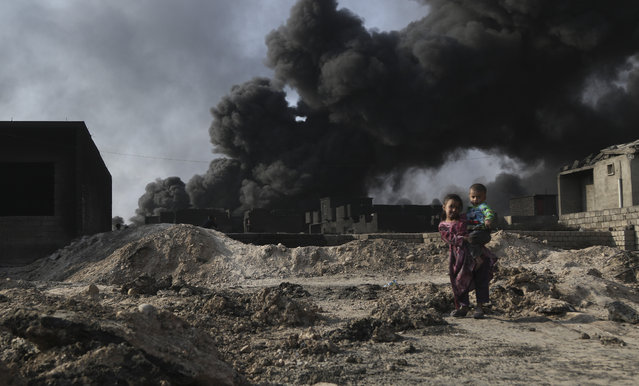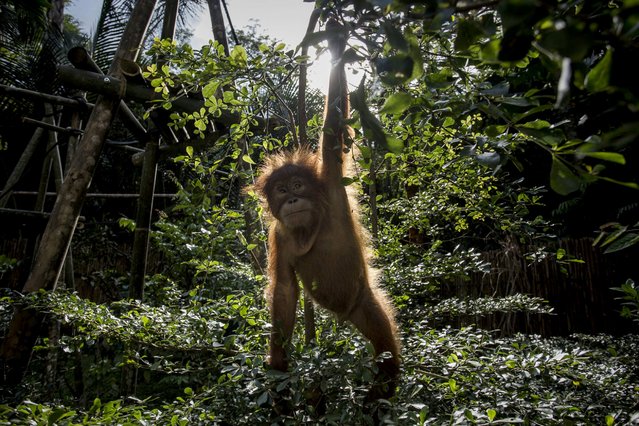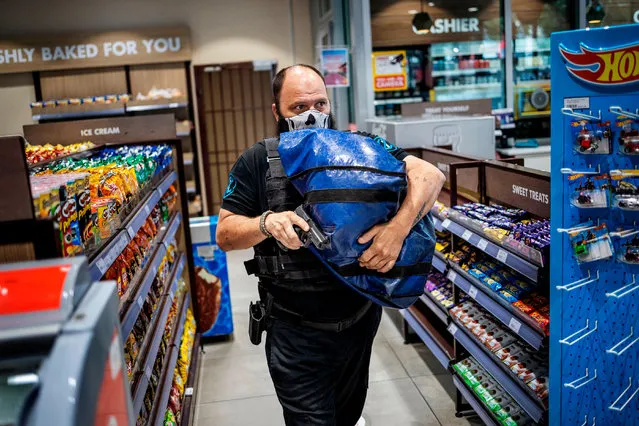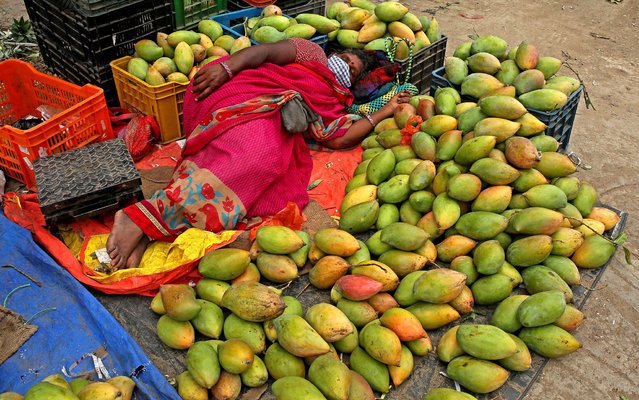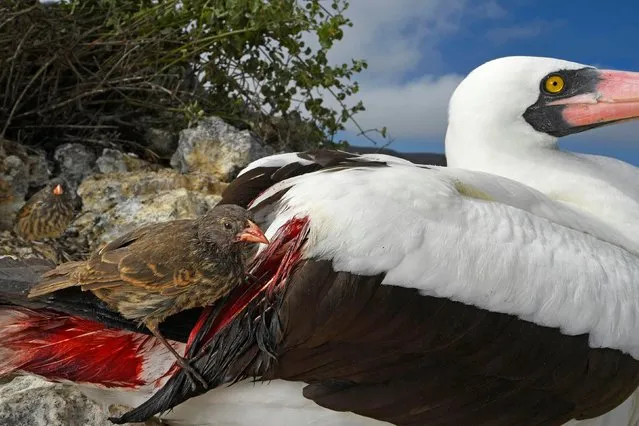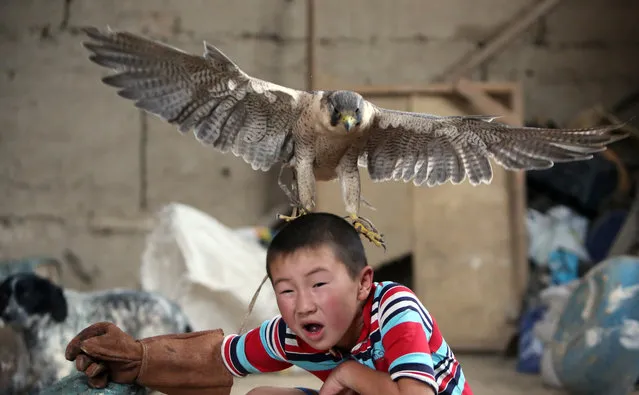
Azat Shajbyrov reacts with a baby falcon on his head in a village of Bokonbaevo, Issyk-Kul area (270 km from Bishkek), Kyrgyzstan, 22 June 2016, as he dreams of continuing a family tradition of golden eagle hunting. Eagle and falcon hunting is an old Kyrgyz tradition. With their birds, Kyrgyz berkutchy hunt in the mountains and participate in the hunting festival “Salburun”. (Photo by Igor Kovalenko/EPA)
23 Jun 2016 13:17:00,post received
0 comments



